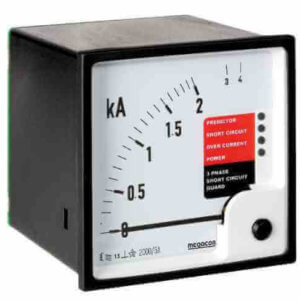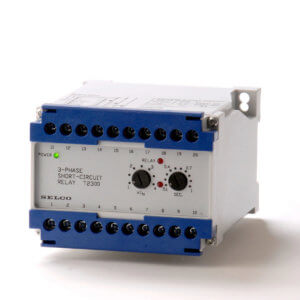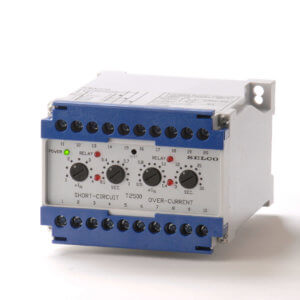Short Circuit Protection
A short circuit is an abnormal connection between two nodes of an electric circuit intended to be at different voltages. This results in an excessive electric current limited only by the Thévenin equivalent resistance of the rest of the network and potentially causes circuit damage, overheating, fire or explosion. Although usually the result of a fault, there are cases where short circuits are caused intentionally, for example, for the purpose of voltage-sensing crowbar circuit protectors.
In circuit analysis, a short circuit is a connection between two nodes that forces them to be at the same voltage. In an ideal short circuit, this means there is no resistance and no voltage drop across the short. In real circuits, the result is a connection with almost no resistance. In such a case, the current is limited by the rest of the circuit.
Showing all 4 results
-

KEC115, KEC116 and KEC117 AC Generator Short Circuit & Over Current Protection, Output Relays, Optional Analog Output
Call for price Read more -

MAG10x – Universal Generator / Motor Protective Relay (Over Current, Short Circuit and Reverse Power)
Call for price Read more -

T2300 Short Circuit Relay
Price range: $ 972.00 through $ 1,132.00 Select options This product has multiple variants. The options may be chosen on the product page -

T2500 Overcurrent & Short Circuit Relay
Price range: $ 1,300.00 through $ 1,403.00 Select options This product has multiple variants. The options may be chosen on the product page
